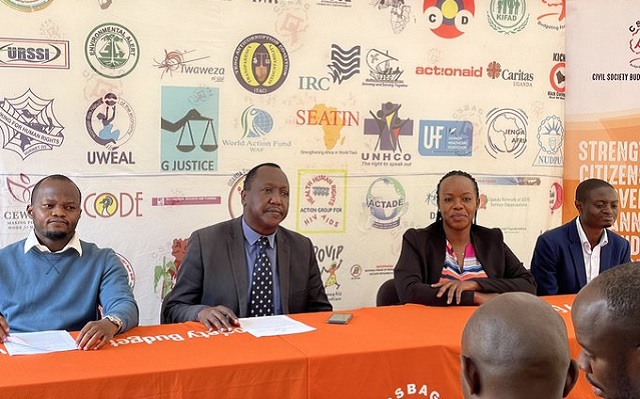
The group wants a clear government plan for putting money in people’s pockets
Kampala, Uganda | JULIUS BUSINGE | Civil Society Organizations under their umbrella, the Civil Society Budget Advocacy Group (CSBAG) are concerned about the insufficient budget allocation to address domestic arrears arguing that the move could stifle private sector growth and general economic recovery.
The latest data from the government shows that domestic arrears have increased from Shs4.65trillion in 2021 to Shs7.55trillion in 2022, representing a 62%. However, the government has allocated only Shs200 billion to pay for the arrears during the financial FY2023/24
By December 2022, the government had released Shs743.54 billion to clear some outstanding domestic arrears which is higher (by Shs81.59 billion) than the approved FY2022/23 budget of Shs661.95 billion.
Now the CSOs say the government needs to reverse the decision.
“We ask the ministry of finance to exercise Sections 79 and 80 of the PFMA, 2015 to penalize and sanction accounting officers who subsequently accumulate arrears, in a bid to address the continued accumulation of arrears,” CSOs said in a statement on April.27.
Relatedly, CSOs are concerned about the rising public debt stock (both domestic and external) which peaked at Shs86.6 trillion as of June 2022 from Shs75.1trillion in June 2021, according to the Auditor General’s report (2022) and is projected to reach 53% of the GDP by June 2023.
The CSOs want the government to develop an annual debt borrowing plan that is consistent with preserving debt sustainability to inform the upcoming fiscal year budget and adhere to it for improved budget execution.
Managing PDM
CSOs also want the government to be clear on the implementation of the Parish Development Model (PDM) – a flagship development project for the current government running until 2026.
“We commend government commitment to implement the PDM and address the existing challenges in implementation which among others include aligning SACCO registration, tagging release of funds to PDM SACCO readiness,” the CSOs said.
“We however note that this implementation is still flawed with challenges, especially the aspect of mindset changes where the population perceives this as a token of appreciation from government.”
“We further worry that more emphasis is placed on the financial inclusion pillar out of the seven which creates an inconsistency between the design and execution of PDM. The lack of baseline data of the intended beneficiary for PDM will likely affect the targeting and tracking impact of the program,” the CSO’s added.
The CSOs said, more resources should be committed to supporting other pillars such as mindset change, value addition and access to information.
 The Independent Uganda: You get the Truth we Pay the Price
The Independent Uganda: You get the Truth we Pay the Price



